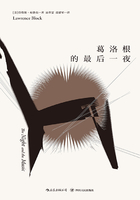"Go," repeated Miss Sally, in an agonized whisper. "You must not be known here."
But the attention of Julia had been arrested by her cousin's agitation, and her eye fell on Corbin, where it was fixed with some fatal fascination that seemed in turn to enthrall and possess him also. To Miss Sally's infinite dismay the others fell back and allowed these two black figures to stand out, then to move towards each other with the same terrible magnetism. They were so near she could not repeat her warning to him without the others hearing it.
And all hope died when Corbin, turning deliberately towards her with a grave gesture in the direction of Julia, said quietly:--
"Interduce me."
Miss Sally hesitated, and then gasped hastily, "Miss Jeffcourt."
"Yer don't say MY name. Tell her I'm Joseph Corbin of 'Frisco, California, who killed her brother." He stopped and turned towards her. "I came here to try and fix things again--and I've brought HIM."
In the wondering silence that ensued the others smiled vacantly, breathlessly, and expectantly, until Corbin advanced and held out his hand, when Julia Jeffcourt, drawing hers back to her bosom with the palms outward, uttered an inarticulate cry and--and spat in his face!
With that act she found tongue--reviling him, the house that harbored him, the insolence that presented him, the insult that had been put upon her! "Are you men!" she added passionately, "who stand here with the man before you that killed my brother, and see him offer me his filthy villainous hand--and dare not strike him down!"
And they dared not. Violently, blindly, stupidly moved though all their instincts, though they gathered hysterically around him, there was something in his dull self-containment that was unassailable and awful. For he wiped his face and breast with his handkerchief without a tremor, and turned to them with even a suggestion of relief.
"She's right, gentlemen," he said gravely. "She's right. It might have been otherwise. I might have allowed that it might be otherwise,--but she's right. I'm a Soth'n man myself, gentlemen, and I reckon to understand what she has done. I killed the only man that had a right to stand up for her, and she has now to stand up for herself. But if she wants--and you see she allows she wants--to pass that on to some of you, or all of you, I'm willing.
As many as you like, and in what way you like--I waive any chyce of weapon--I'm ready, gentlemen. I came here--with HIM--for that purpose."
Perhaps it may have been his fateful resignation; perhaps it may have been his exceeding readiness,--but there was no response. He sat down again, and again swung his hat slowly and gloomily to and fro under his chair.
"I've got him in a box at the stage office," he went on, apparently to the carpet. "I had him dug up that I might bring him here, and mebbe bury some of the trouble and difference along with his friends. It might be," he added, with a slightly glowering upward glance, as to an overruling, but occasionally misdirecting Providence,--"it might be from the way things are piling up on me that some one might have rung in another corpse instead o' HIM, but so far as I can judge, allowin' for the space of time and nat'ral wear and tear--it's HIM!"
He rose slowly and moved towards the door in a silence that was as much the result of some conviction that any violent demonstration against him would be as grotesque and monstrous as the situation, as of anything he had said. Even the flashing indignation of Julia Jeffcourt seemed to become suddenly as unnatural and incongruous as her brother's chief mourner himself, and although she shrank from his passing figure she uttered no word. Chester Brooks's youthful emotions, following the expression of Miss Sally's face, lost themselves in a vague hysteric smile, and the other gentlemen looked sheepish. Joseph Corbin halted at the door.
"Whatever," he said, turning to the company, "ye make up your mind to do about me, I reckon ye'd better do it AFTER the funeral. I'M always ready. But HE, what with being in a box and changing climate, had better go FIRST." He paused, and with a suggestion of delicacy in the momentary dropping of his eyelids, added,--"for REASONS."
He passed out through the door, on to the portico and thence into the garden. It was noticed at the time that the half-dozen hounds lingering there rushed after him with their usual noisy demonstrations, but that they as suddenly stopped, retreated violently to the security of the basement, and there gave relief to their feelings in a succession of prolonged howls.













